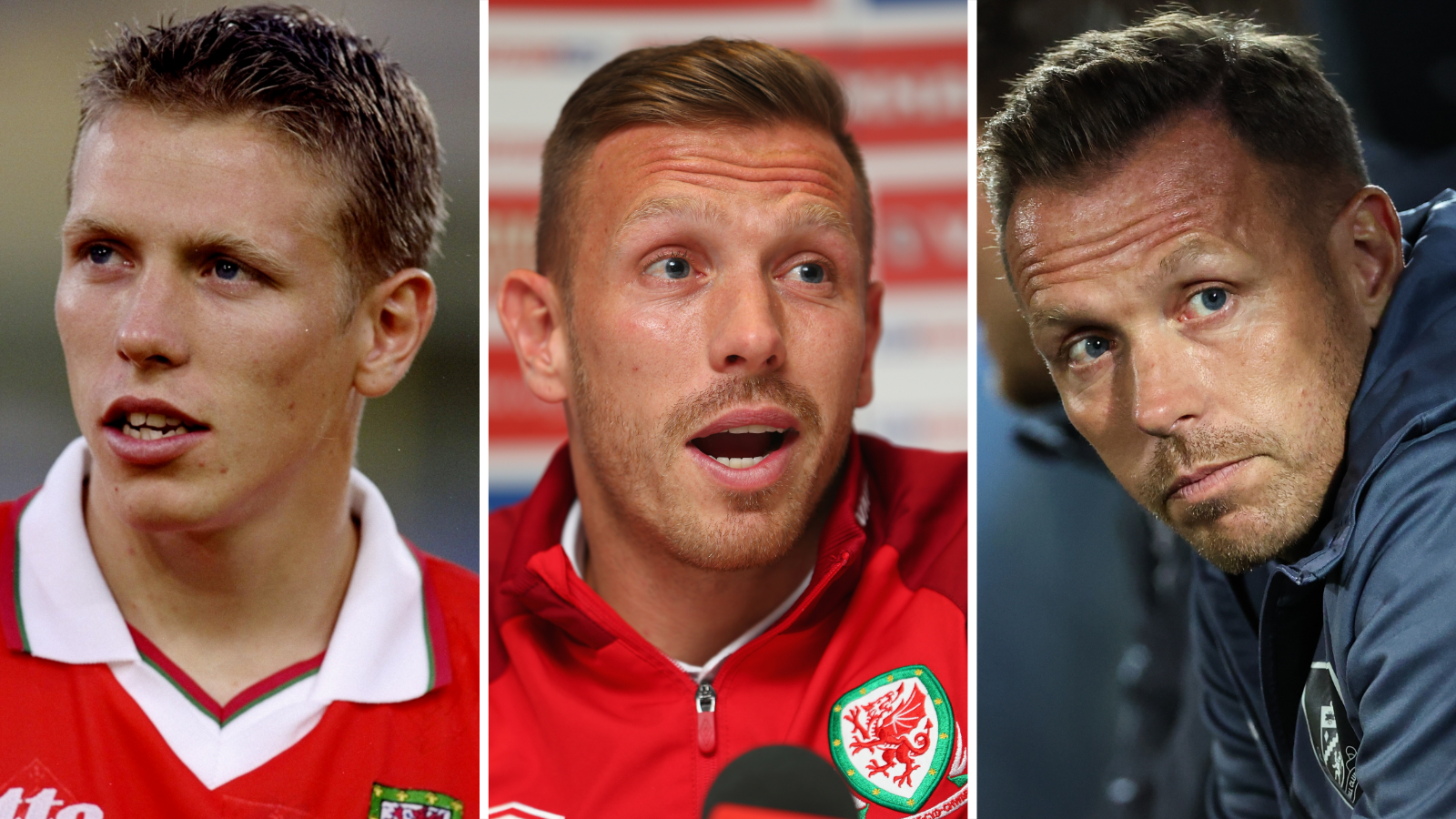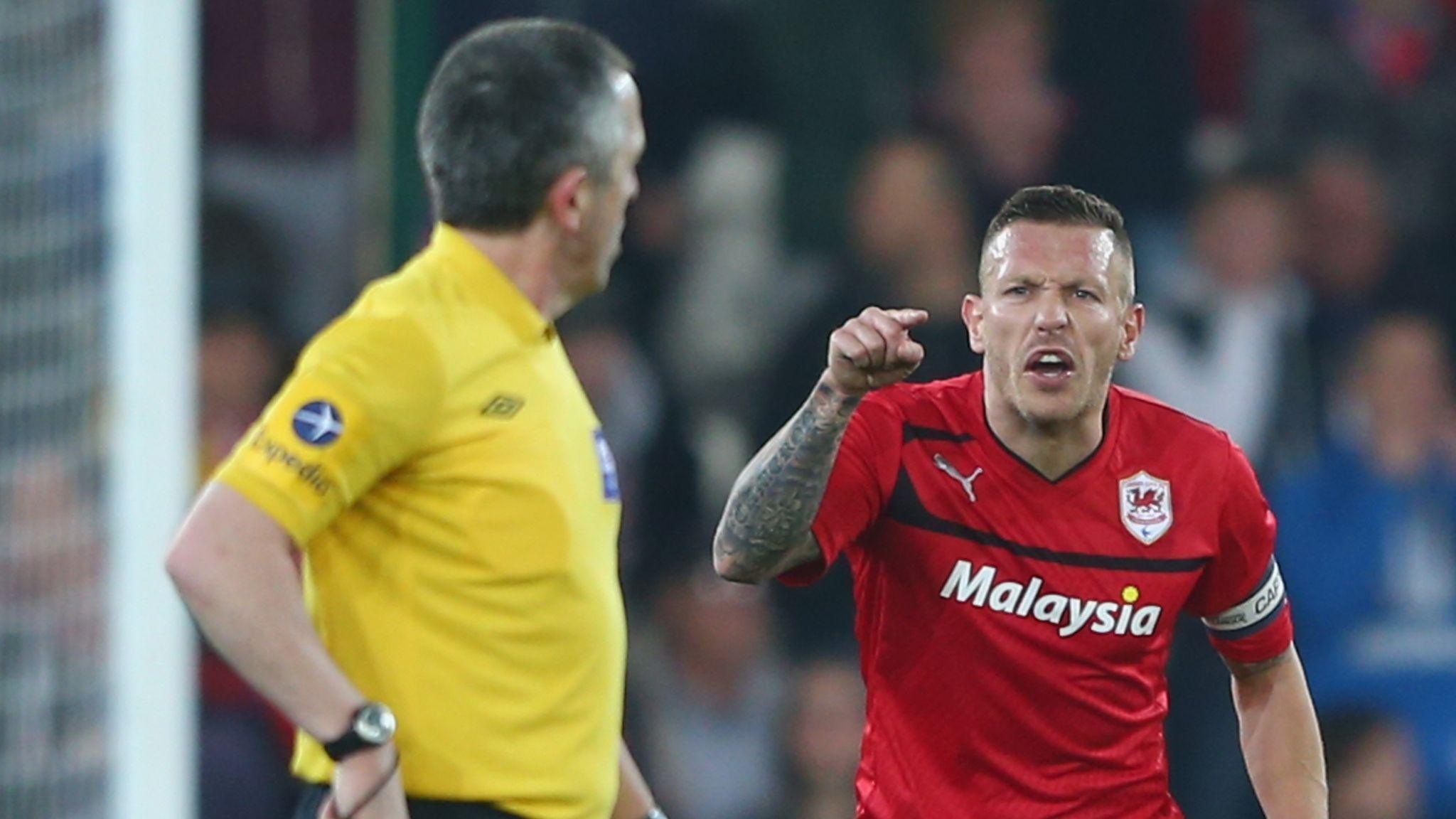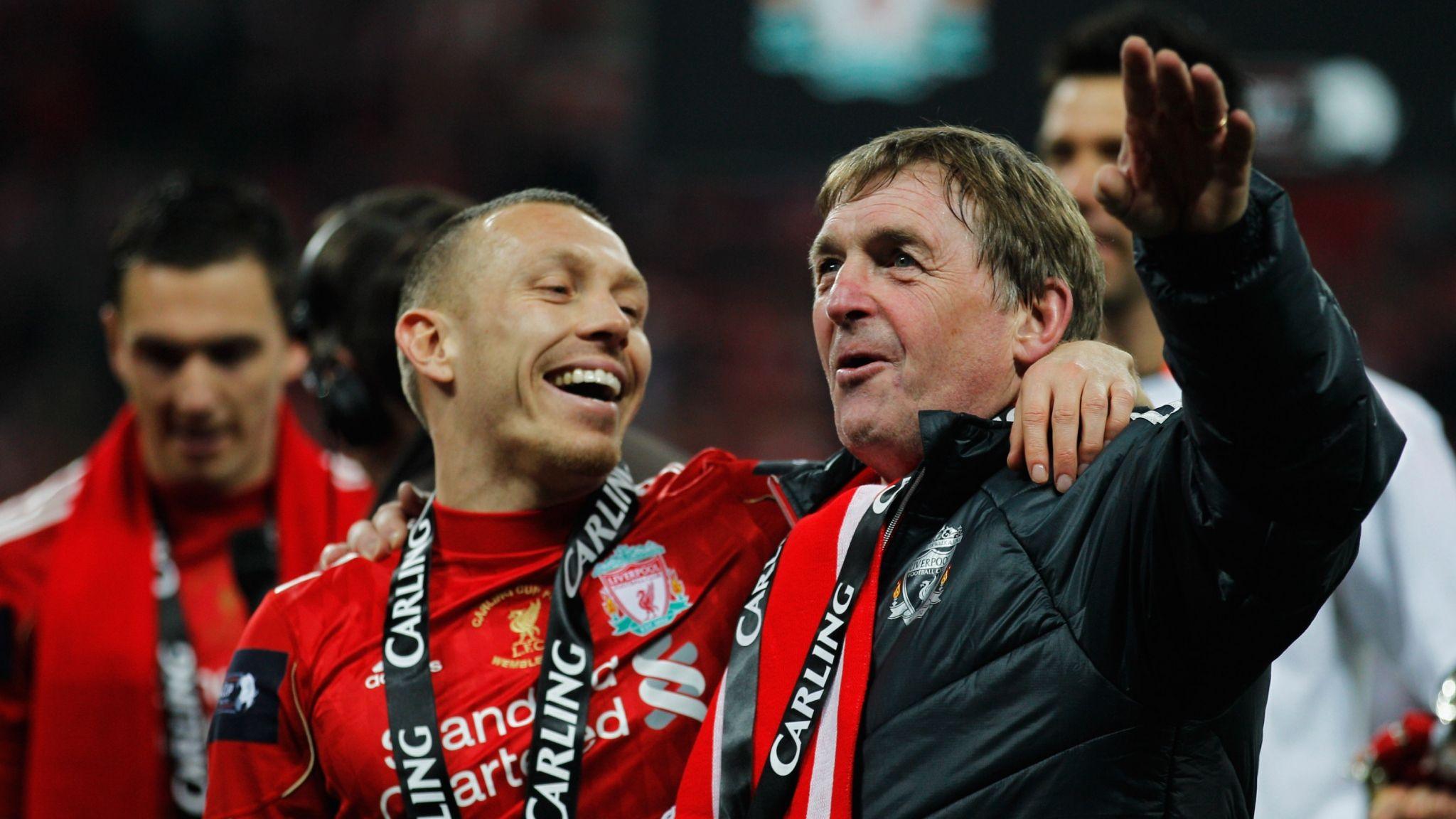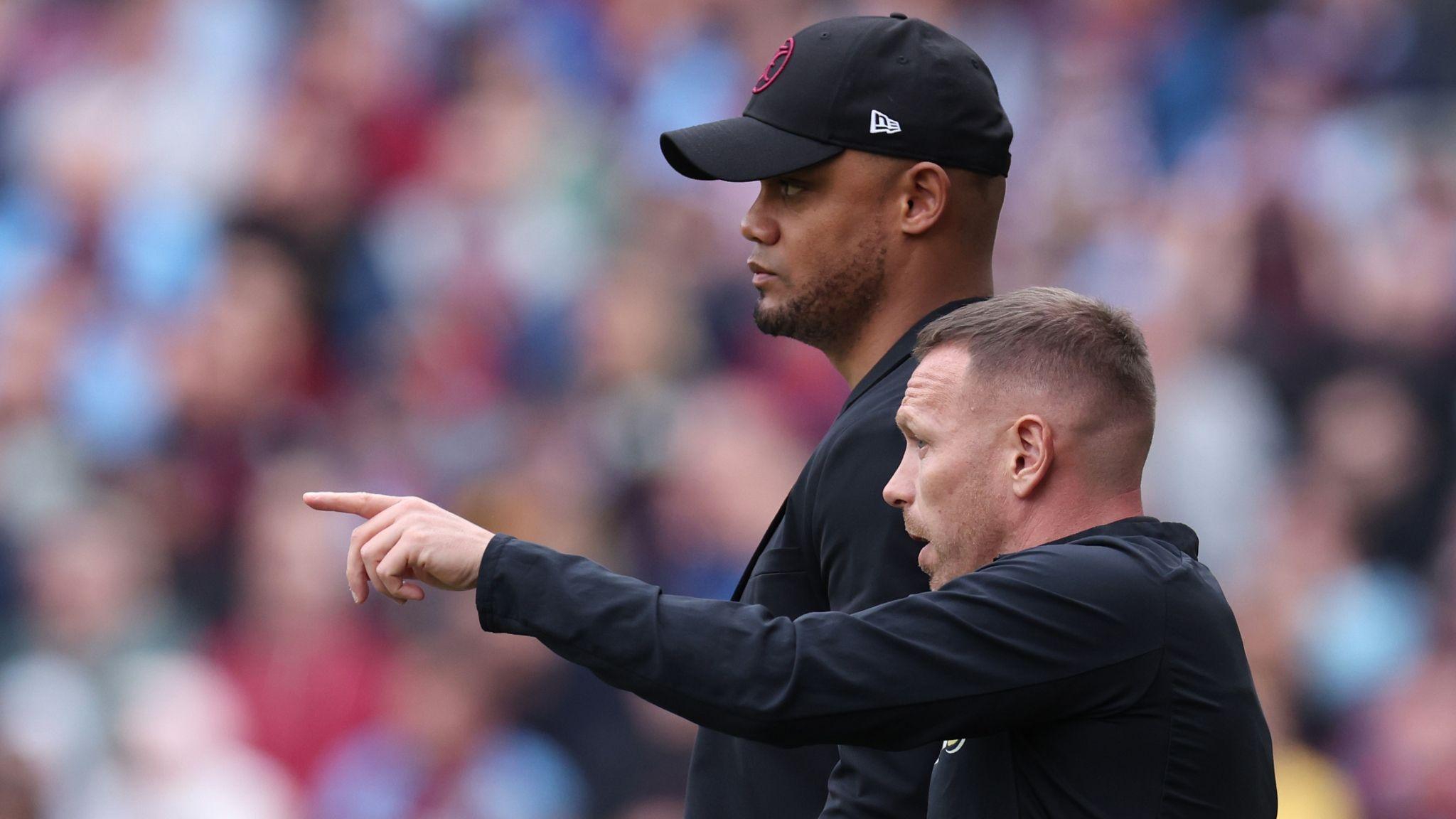Football's passionate scholar Bellamy gets Wales fairytale

Craig Bellamy made his Wales debut in 1998, captained his country a decade later and began coaching after an 18-year playing career
- Published
A job he had always wanted, but perhaps never truly believed he would get.
Perhaps he started to believe it would be his during the three weeks it took the Football Association of Wales (FAW) to name Craig Bellamy as their new manager.
But certainly, on his long journey to prove he was worth the chance he thought he deserved, the former Wales captain is likely to have had his doubts.
As he put it so typically and bluntly after his final appearance for his country and the failure to qualify for a World Cup, sometimes you do not get what you want.
"Fairytale endings? Life isn’t like that," Bellamy said in 2013 with a wry smile.
"Sometimes, when you read your daughter a bedtime story, you would be doing her justice by saying ‘the prince does die’."
And yet, a decade or so on, Bellamy has the chance to continue his Wales story after being named Robert Page’s successor, with the aim of reaching the major finals that eluded him as a player of 78 caps, 19 goals, and plenty of headlines.
And there were so many headlines, to the extent Bellamy once said the title of his autobiography should be called ‘Don’t Google Me’.
But, in opting for the 44-year-old ahead of pursuing interest in the likes of Thierry Henry, Willy Sagnol and Des Buckingham, it suggests the FAW has indeed looked beyond the caricature and into the background of a character who so often surprised and defied the on-the-pitch perception.

Craig Bellamy cut a forthright figure, on and off the field, during his playing career
Yes, there was the snarl in a football shirt, but there was also the student of the game.
He played and learned under some of the best – from Sir Bobby Robson and Kenny Dalglish to Martin O’Neill and Rafael Benitez – learning along the way.
But his fascination with football, its tactics and theories, was long obvious before it became a modern fashion.
He long ago cited being a fan of Marcelo Bielsa, having been impressed with how Argentina played against Wales in 2002 and following his Bilbao side.
Overseas football was never foreign to Bellamy, his world did not stop at the Premier League.
Was it any wonder his time as a TV pundit was one littered with astute observations?
And Bellamy’s football education never stopped at formations and philosophies.
When Wales played the Republic of Ireland at Croke Park in 2007, it was Bellamy who explained to media and team-mates the significance of featuring in the GAA venue’s first soccer match, having visited previously to sample the different sport and culture.
A year later, as a youthful Wales faced the Netherlands in Rotterdam, he held court on why De Kuip was his atypical choice of favourite ground, before detailing his admiration of the influence of Johann Cruyff on the modern game.
And, before one game in Monchengladbach, he revealed his tattoo tribute to his Welsh hero Owain Glyndwr and the 15th century victory over England at the Battle of Pilleth – before chastising the assembled press given that it was a German journalist who had noticed the arm-length artwork.
Harsh, humorous and honest

Craig Bellamy won the EFL Cup under Kenny Dalglish at Liverpool
That was the history, but Bellamy was often most energised – and sometimes most frustrated – when talking about the future.
Bellamy admitted to being demoralised by Wales’ failure to compete so often during his days, how for all his Welsh pride he would find the cycle of struggle difficult to live with in a red shirt.
He has long spoken of improving youth pathways and development and, perhaps with those long-term aims of management in mind, took an early interest.
He was becoming involved in Wales age-grade sides almost immediately after retirement, and speaking at FAW Trust events to promote grassroots.
As long as 17 years ago, Bellamy was in the stands and in the dressing room as an Under-21 side featuring Aaron Ramsey, Joe Allen and Sam Vokes shocked a France team containing the likes of Blaise Matuidi. He looked out for talent on the rise and would be fiercely protective.
Especially with Ramsey. Among the first to shout loudly about his potential, he appeared to take the current captain under his wing during the managerial reign of his friend Gary Speed.
Bellamy appointed Wales manager on four-year deal
- Published9 July 2024
Bellamy reveals depression diagnosis
- Published18 May 2020
Burnley assistant manager Bellamy is bankrupt
- Published1 April 2023
When praise came, it meant something.
But so too cut his criticism. Sometimes harsh, sometimes humorous, always honest.
And thus that drive for better has not always been well handled by others.
It has been said young team-mates sometimes felt like walking on eggshells when Bellamy was in camp.
Some claim that Wales relaxed when he retired, with tension around the team being given as one reason why he missed out on the job in 2018.
He had made no secret of his desire to show what he could do as manager. He was even being tipped five years earlier when still playing and there were question marks over Chris Coleman’s future.
In the end, Bellamy only lost out by one casting vote six years ago, surprising decision-makers with his detailed presentation and deep beliefs about the game when the appointment of Ryan Giggs had seemed almost a fait accompli.
There was no happy ending for Bellamy as Giggs got his chance, but half a dozen years on, the former striker has developed further.
After a player development role in Cardiff’s academy - one he left after a claim of alleged bullying but for which he was not subjected to any disciplinary action following an investigation - Bellamy turned down the chance to take a first step into management with Oxford United.
He later said he did not feel ready.
His time with Vincent Kompany changed that.
Ticking all the boxes

Craig Bellamy spent five years as an assistant to Vincent Kompany at Anderlecht and Burnley
First working with young players at Anderlecht, as his former Manchester City team-mate turned around the Belgian club’s fortunes through youth, then showcasing team building and expressive football success at Burnley, Bellamy has said Kompany helped him fill in the gaps on his footballing education.
And with Wales setting out high-performance criteria and in-game management ability in their search for a manager, he ticked boxes to the extent he appeared an almost obvious choice.
He has spoken of his change off the field too. He has come through personal struggles and issues with mental health, bravely discussing in public how he has found greater coping strategies and the ability to seek help.
And for all the memories of the snarl, there was perhaps an irony that Bellamy’s managerial debut came when standing in for mild-mannered Kompany’s touchline ban.
How he copes with the pressure of standing on the frontline – and in a role he has so long coveted – would have been a question likely put to him when he met FAW officials last week.
But while those old perceptions and reservations may have existed, Bellamy is said to have again impressed with his passion, vision and how - through the will, work and drive he has never been afraid of - he can revitalise the fortunes of the team and the feeling around Welsh football.
For the FAW, it may be seen as a risk, but one they believe could come with great rewards.
For Bellamy, it is the chance he may not have always thought he would get, but the one he now has to take.
And, with World Cup qualification the aim, it is the chance for him to write his own fairytale ending.